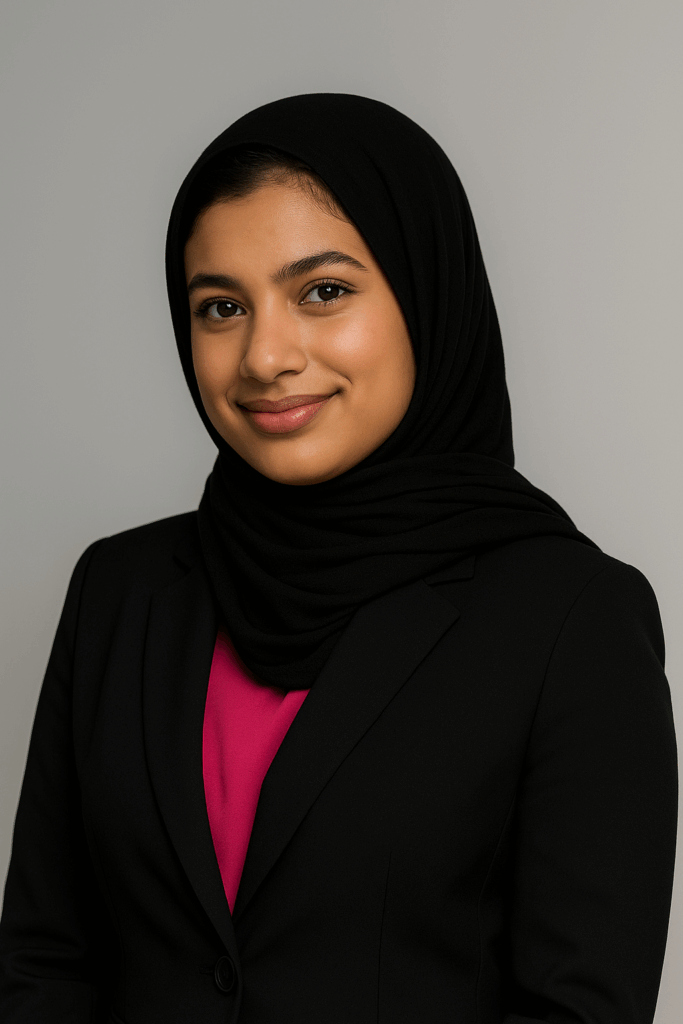The Cambridge application deadline is approaching, and you’re still torn between multiple courses. Mathematics, Natural Sciences, Engineering – they all seem appealing, but what if you pick the wrong one?
This isn’t just anxiety talking. Cambridge’s unique structure makes course selection more critical than at other universities. Course changes are difficult, and choosing poorly could mean three years of struggle in a subject that doesn’t match your interests or abilities.
Every year, capable students make Cambridge course choices based on incomplete information, A-level performance alone, or assumptions about what university study actually involves. Many discover too late that their chosen course bears no resemblance to what they expected.
The good news? There’s a proven decision-making framework that eliminates guesswork and builds genuine confidence in your choice.
So Are You in the Right Place?
This guide is specifically for students who are:
Academically capable and considering multiple Cambridge courses but struggling to choose between them. Students who know they want Cambridge but feel overwhelmed by course options and concerned about making the wrong choice. Anyone facing pressure from approaching application deadlines while still uncertain about course selection.
If you already know exactly which Cambridge course you want and why, this probably isn’t for you. But if you’re losing sleep over course selection whilst the deadline approaches, keep reading.
Why Cambridge Course Choice Feels Impossible Right Now
Cambridge course selection creates unique pressures that don’t exist at other universities. Unlike institutions where you can easily switch between similar subjects, Cambridge’s intensive supervision system and college structure make course changes complicated and sometimes impossible.
The stakes feel impossibly high because they are. Choose Natural Sciences expecting broad scientific study, only to discover the mathematical content increases dramatically in year two. Pick English Literature thinking it’s about appreciating great books, only to find it’s heavily focused on critical theory and complex analytical frameworks.
Most course guides provide generic descriptions that don’t capture what daily life actually looks like for students. They don’t explain that Cambridge History involves more independent archive research than classroom discussion, or that Economics becomes increasingly mathematical as you progress through the Tripos.
The Course Title Trap
Cambridge course titles often mask what students actually study day-to-day. “Natural Sciences” sounds broad and flexible, but you must choose specific subjects early and mathematical demands increase exponentially. “English” suggests literature appreciation, but focuses heavily on theoretical frameworks and critical analysis rather than creative engagement with texts.
You’re making decisions based on A-level experiences that bear little resemblance to university study. A-level Biology doesn’t prepare you for the mathematical rigour of Cambridge Natural Sciences. A-level English focuses on completely different skills from Cambridge English Literature.
This disconnect between expectation and reality explains why so many students struggle in their first year or regret their course choice within months of starting.
The Evidence: Why Most Students Get This Wrong
Cambridge’s own data reveals concerning patterns in course selection. Students who switch courses or struggle academically often cite “course wasn’t what I expected” as the primary reason for their difficulties.
The A-Level Continuation Mistake
Most students choose Cambridge courses based primarily on their strongest A-level subjects. This seems logical but creates problems when university-level study demands completely different skills and thinking patterns.
Mathematics A-level focuses on technique and application. Cambridge Mathematics emphasises abstract reasoning and proof construction that many students find completely unfamiliar. Students who enjoyed solving A-level maths problems often struggle with the theoretical focus of university mathematics.
Natural Sciences students frequently underestimate the mathematical physics components that become mandatory in later years, having chosen the course based on enjoyment of A-level Biology or Chemistry.
The Career Path Assumption
Many students choose courses based on assumed career outcomes without understanding how Cambridge graduates actually progress professionally. You might pick Economics thinking it leads directly to finance careers, not realising that Cambridge graduates succeed in diverse fields regardless of undergraduate course.
This approach often backfires because you perform poorly in subjects you don’t genuinely enjoy, limiting your options rather than enhancing them.
The Cambridge Course Decision Framework: Your Step-by-Step System
After working with hundreds of successful Cambridge applicants, we’ve identified a specific decision-making process that eliminates guesswork and builds genuine confidence in your choice.
Step 1: The Interest Audit (Complete This Weekend)
You need to identify your genuine intellectual interests beyond subject labels. This goes deeper than “I’m good at Maths” or “I like History.”
Create three specific lists:
Tasks that completely absorb you – When do you lose track of time while learning or thinking? Are you drawn to solving abstract puzzles, analysing evidence, or understanding how things work?
Topics you research independently – What do you read about, watch videos about, or discuss with friends by choice? These reveal authentic interests beyond classroom requirements.
Problems you enjoy tackling – Do you prefer mathematical proofs, creative interpretation, experimental design, or logical argumentation?
This audit reveals thinking patterns and genuine interests that transcend subject boundaries and predict university success.
Step 2: The Reality Check (Next Week)
For each course you’re considering, research what students actually do daily. Don’t rely on prospectuses or generic course descriptions.
Read actual supervision reading lists for specific colleges. Cambridge publishes example reading lists that show the real academic level and content focus. A Natural Sciences reading list reveals the mathematical demands, whilst English reading lists show theoretical complexity.
Contact current students through college websites or social media. Most Cambridge students happily discuss their courses with prospective applicants. Ask specific questions: “What does a typical week look like?” “What’s the hardest part of your course?” “What do you wish you’d known before starting?”
Examine past papers and coursework examples to understand assessment styles and academic expectations for each course you’re considering.
Step 3: The Skills Assessment (This Week)
Different Cambridge courses require different thinking skills that extend far beyond A-level performance. Mathematics requires abstract reasoning and proof construction. History demands evidence evaluation and argument construction. Natural Sciences combines mathematical thinking with experimental design.
Test your genuine enjoyment of required thinking patterns by exploring university-level materials. Do you find mathematical proofs fascinating or frustrating? Do you enjoy constructing arguments from historical evidence or prefer learning established facts?
Download sample supervision questions from Cambridge college websites and attempt them. Your emotional response – excitement, curiosity, or dread – reveals compatibility with different courses.
Step 4: The Future Flexibility Analysis
Cambridge’s structure offers some flexibility, but understanding your options reduces anxiety about making the “perfect” choice.
Some courses allow specialisation changes during your degree. Natural Sciences students can switch between different scientific specialisations. History students can focus on different periods or approaches. Others require earlier commitment – Mathematics students must choose between pure and applied focuses relatively early.
Research which courses maintain options and which require early specialisation decisions. This knowledge helps you choose courses that align with your current interests whilst keeping future doors open.
How Cambridge Tutors Transform Course Decision-Making
Mark brings exceptional insight to course selection decisions with his Double First in History from Cambridge and perfect 45/45 International Baccalaureate results. With over 3,000 hours of tutoring experience across more than 100 students, Mark understands both the academic demands of different Cambridge courses and the decision-making challenges students face.
His academic background demonstrates the flexibility that Cambridge education provides – excelling across multiple subjects before specialising in History. Mark helps students understand how Cambridge courses develop critical thinking and research skills that prove valuable regardless of specific career paths, whilst ensuring they choose courses that genuinely match their interests and abilities.

Sneha, with her Cambridge English Literature degree and upper second-class honours, understands what studying humanities subjects at Cambridge actually entails. Her strong academic performance across English Literature, History, and Psychology demonstrates the analytical thinking skills that Cambridge courses develop.
Sneha has supported students preparing for Oxbridge and other top universities, helping them understand the intellectual demands and opportunities within humanities subjects. Her experience in both creative and critical writing provides authentic insight into what Cambridge English courses really involve – from the analytical thinking required to the development of sophisticated writing skills that transfer across multiple career paths.

Making Your Final Decision: The Confidence Tests
After completing the framework, you should feel genuine excitement about your chosen course rather than resignation or anxiety. These final tests confirm you’ve made the right choice.
The Sunday Morning Test
Imagine spending Sunday morning reading about your chosen subject by choice, not obligation. Do you feel excited or reluctant? This simple test reveals genuine interest versus perceived suitability.
The Difficult Concept Test
Cambridge courses involve challenging periods. When you imagine struggling with difficult concepts in your chosen subject, do you feel motivated to persist or tempted to quit? Genuine interest provides resilience during tough academic periods.
The Enthusiastic Explanation Test
Can you explain enthusiastically why you’ve chosen your course without relying on career prospects or family expectations? Students who thrive at Cambridge feel passionate about their subjects beyond external motivations.
If you pass all three tests, you’ve found your course. If not, return to the framework and explore alternatives.
Stop Second-Guessing Your Cambridge Course Choice
Choosing your Cambridge course doesn’t have to feel like guesswork. Our Cambridge-educated tutors understand what different courses actually involve and can guide you through the decision-making process that successful applicants use.
Mark and Sneha, along with our other Cambridge graduates, provide insider insight into course realities. They help you match your genuine interests with Cambridge opportunities through structured exploration rather than assumptions.
Ready to make your course decision with confidence? Our Cambridge tutors can help you choose the right course before your application deadline.
Book your free consultation today and discover how our Cambridge-educated tutors can eliminate your course selection uncertainty.
We also offer these Subjects
We offer these Levels
FAQs
My child lacks confidence—how will tutoring help?
Many students struggle with confidence, especially if they’ve had a bad experience in school or feel overwhelmed by the subject. Our tutoring approach helps students build confidence by breaking down difficult topics, reinforcing understanding, and celebrating progress.
My child is already working hard—why are they still struggling?
Studying isn’t just about memorising facts; your child must learn how to apply knowledge to unfamiliar contexts, especially in exams. Many students put in hours of revision but struggle with exam technique, structuring answers, or understanding mark schemes. A tutor can help identify and address these specific challenges.
How do I know if the tutoring is working?
We track progress through regular assessments, exam-style questions, and feedback from both the student and tutor. You’ll receive updates on improvements, areas of focus, and strategies for further progress.
Which exam boards do you cover?
We tutor for AQA, OCR, Edexcel, WJEC and CIE exam boards. We also cover the International Baccalaureate (IB)
How do online tutoring sessions work?
We set up a learning space which is joined at the time of a session. In the learning space, students are on video call with our tutors and use an interactive whiteboard with resources. Parents and students are often surprised how easy it is!
How often should my child have tutoring sessions?
This depends on their current level and goals. Some students benefit from weekly sessions for consistent progress, while others may prefer more intensive lessons closer to exams. We can recommend a schedule based on your child’s needs.
What if my child has a busy schedule?
We offer flexible scheduling, including evening and weekend sessions, to fit around your child’s commitments. Tutoring is designed to be productive and efficient, so even one hour a week can make a significant difference when supported with independent study.
Why are Greenhill Academics tutors considered the best you can find?
We select tutors with exceptional academic backgrounds, proven experience in helping students reach their goals, and in-depth knowledge of exam board requirements.
How do I get started?
Getting started is easy! Simply contact us to book a quick consultation, and we’ll select a tutor from our team who is the best match for your child
